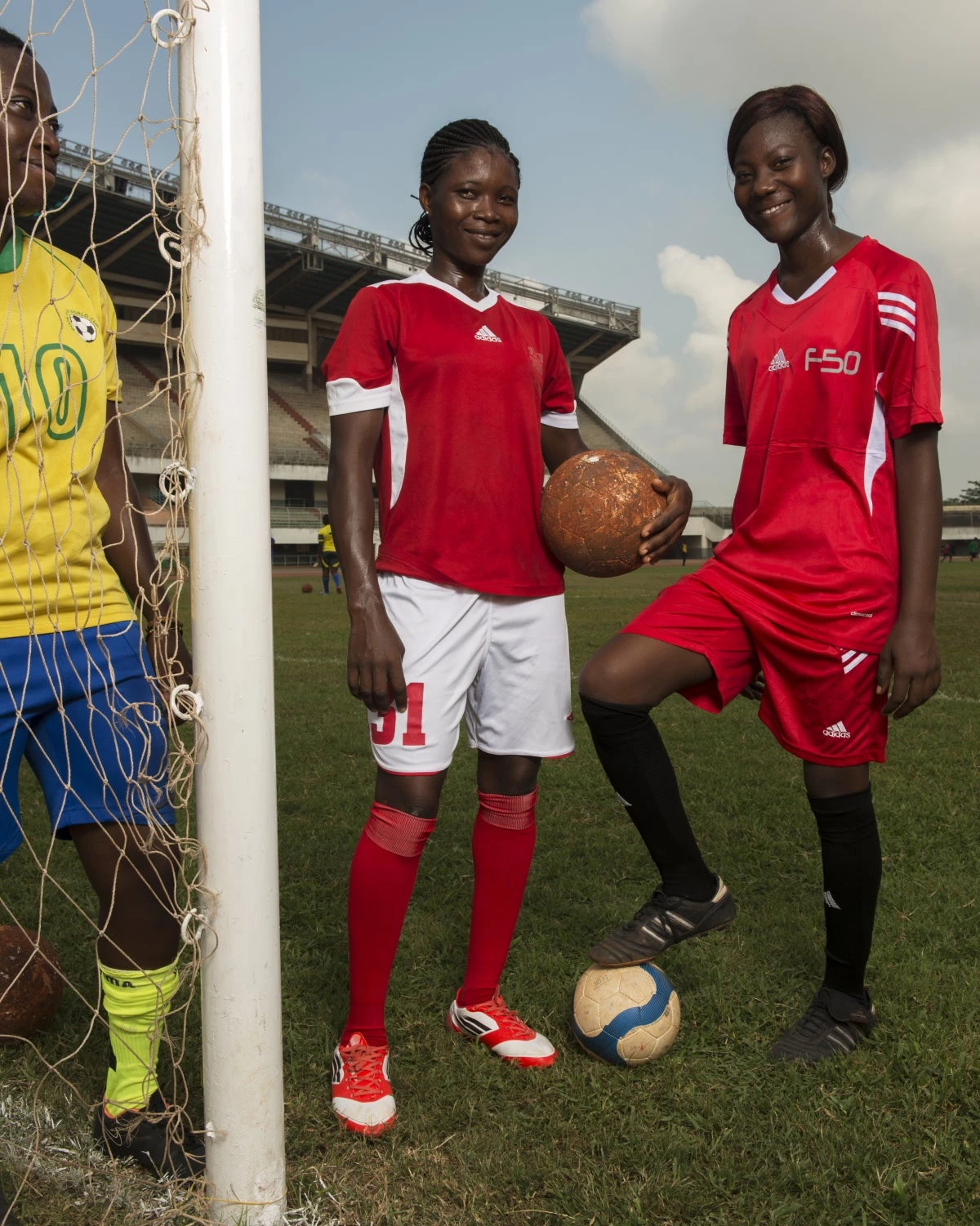
Last week we saw two Ivorian women, Murielle Ahouré and Marie-Josée Ta Lou, fly past the finish line in a historic one-two finish in the 60 meters sprint at the World Indoor Championships in Birmingham, England while Burundi’s Francine Niyonsaba triumphed in a gritty 800 meters race. From the 60 meters to the 3000 meters, African women graced the podium or were not far from it, a testament to their athletic prowess.
The success of female African athletes on the global stage—whether it is in track and field, basketball, or soccer—, shows that sports can be a powerful tool when it comes to breaking barriers and empowering women.
Female runners, notably from Kenya and Ethiopia, are setting into motion a virtuous cycle of development, investing their race earnings into their home communities and promoting women’s running as a viable profession. Tegla Loroupe, one of the world’s fastest runners and first African woman to win the New York City marathon, has committed herself and her earnings to promoting social cohesion in her country and training future generations of runners, particularly from conflict-ridden zones like the Horn of Africa.
At the outset, girls in Sub-Saharan Africa are less likely to attend primary and secondary school, which usually provides a child’s first introduction to physical education. As they enter adolescence, they are often confronted with the lack of women-friendly education and sports facilities and equipment, such as girls-only latrines and sanitary products, which discourage them even further. Likewise, misconceptions of girl's participation in sports by parents, teachers, and coaches often dissuades girls from playing sports even when they do have access.
And yet, Africa’s resilient sportswomen are defying these challenges, proving that they can achieve great success on and off the field, and that in fact, the two can go hand in hand. Nigeria’s soccer phenom Eniola Aluko once said, “Sport gives you real life lessons that make you bulletproof.” An Olympian and member of Chelsea’s women’s soccer team, she is also an accomplished lawyer.
Indeed, there is a growing consensus that the practice of a sports discipline yields greater education achievement, and beyond that, more successful professional careers. Studies undertaken in the United States on the impact of Title IX (legislation passed in 1972 that prohibits discrimination on the basis of sex in any federally funded education program or activity) reveal that greater athletic opportunities for women led to women staying in school longer and entering male-dominated occupations, particularly in STEM (science, technology, engineering and math). American female participation in sports ballooned and along with that came new industries and lucrative markets for sports apparel, equipment, facilities, and competitions. Why can’t this multiplier effect also be unleashed on the African continent?
While it is true that education and sports budgets are already stretched in Sub-Saharan Africa, there needs to be a wide acknowledgement that the benefits of investing in women’s sports far outweigh the cost. An early introduction to athletics has the potential to change the lives of millions of girls. Sports are an excellent vehicle for promoting awareness about a range of health and social issues such as HIV/AIDs, nutrition, practices to improve sanitation, reproductive health, teen pregnancy, vaccination campaigns, and combating sexual and gender-based violence.
In Tanzania for example, the World Bank’s Africa Gender Innovation Lab is working with Grassroot Soccer to evaluate an intervention that provides girls and boys with information on sexual and reproductive health (SRH) through soccer clubs. Girls are supplied with SRH training, mentoring to help them set healthy behavioral goals and strategies to improve their SRH outcomes, and free contraceptives. This impact evaluation will shed greater light on the effectiveness of these sport and health interventions, and could have significant policy implications.

As announced recently by French President Emmanuel Macron during the visit of Liberian President George Weah, the World Bank is joining forces with French Development Agency (AFD) to explore economic models for sports in development and their applicability to African countries. We are currently undertaking a study that will assess the integration of sports components in urban development, education or health projects and the scaling up of sport for development projects promoted by civil society organization. We are also working with African ministries of sports and youth along with sports federations to incentivize schools to use athletics as a medium for skills acquisition —for both girls and boys.
However, that's just the tip of the iceberg. There is much more scope for African governments and their partners to level the playing field for Africa’s athletes. We are committed to advocating the cause of women's access to sports education, so that women and girls across the region have every advantage to advance and become the future Olympians, CEOs, coaches, teachers, and leaders of tomorrow.


Join the Conversation